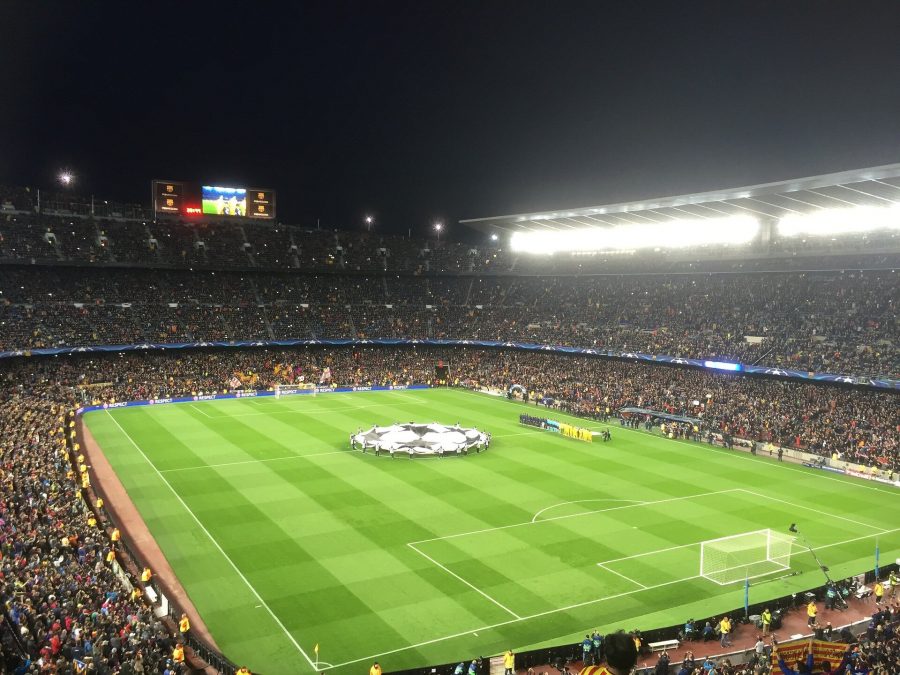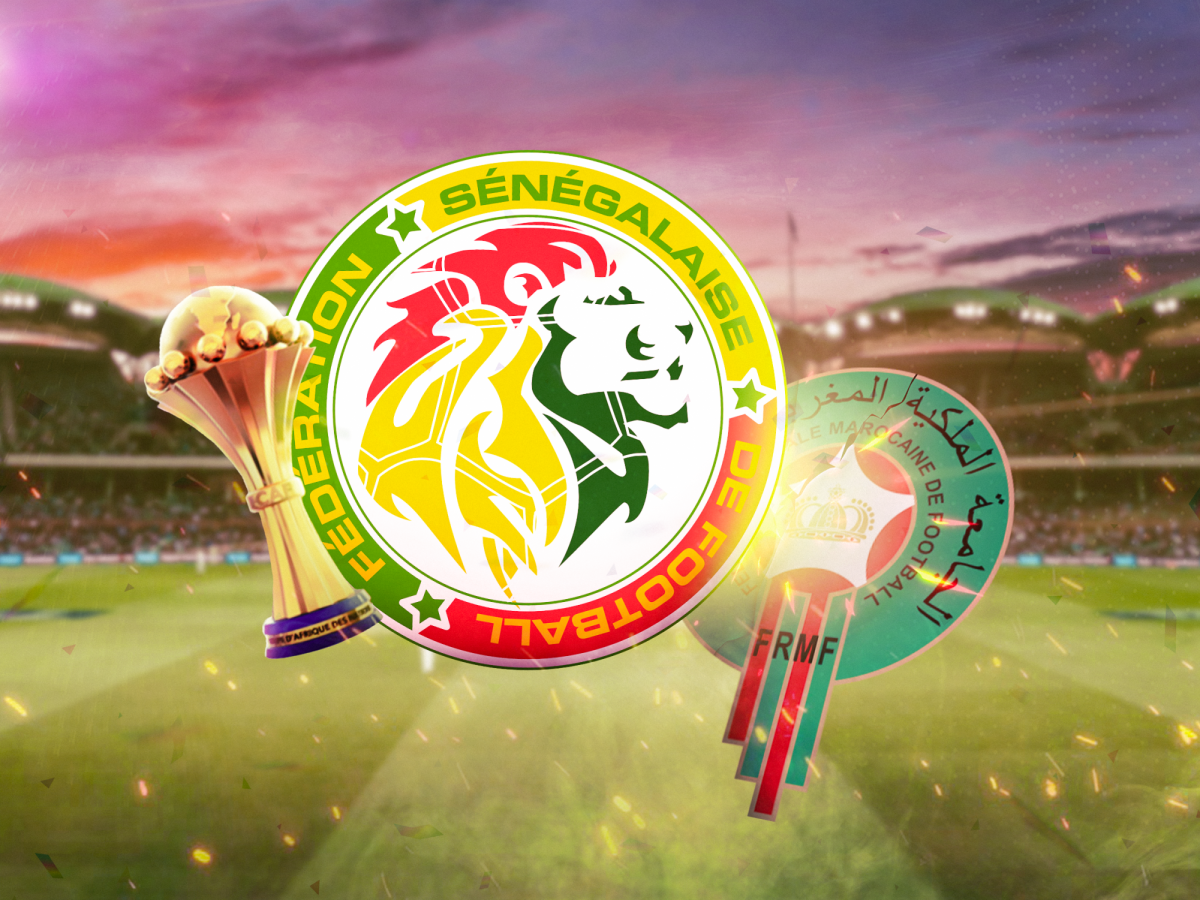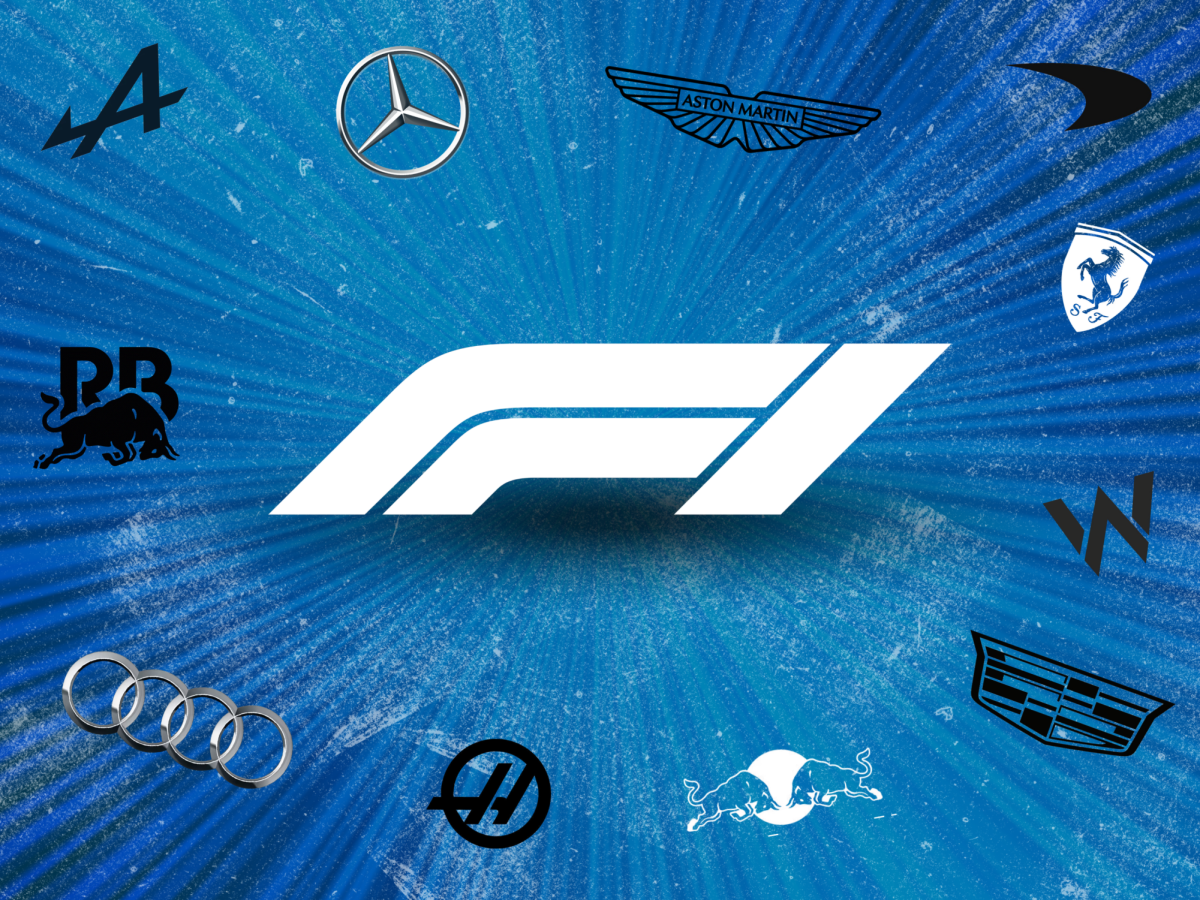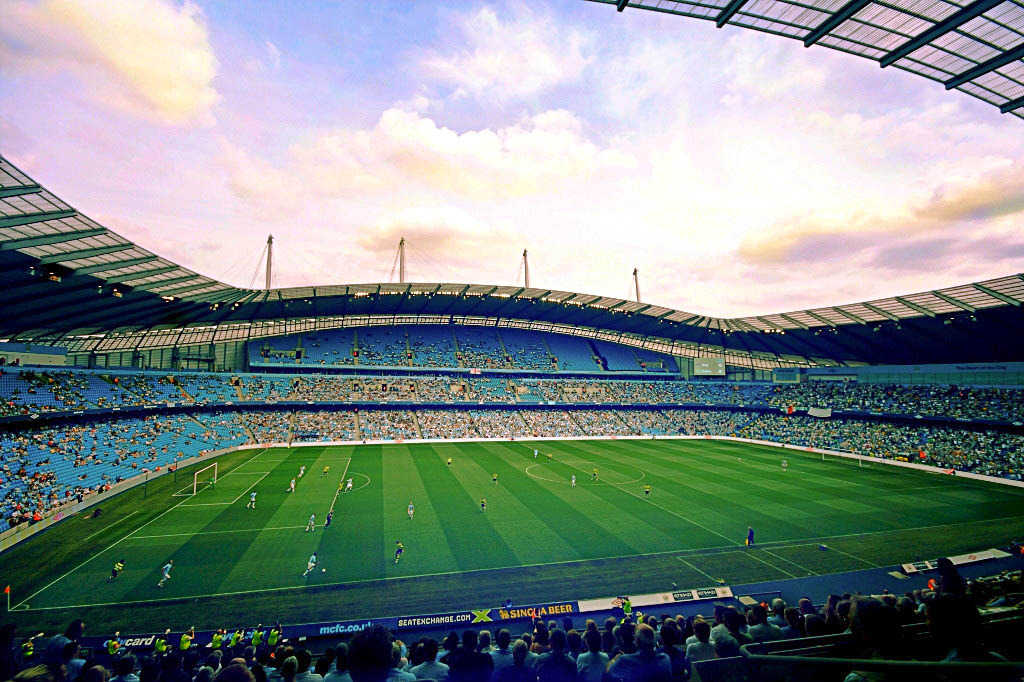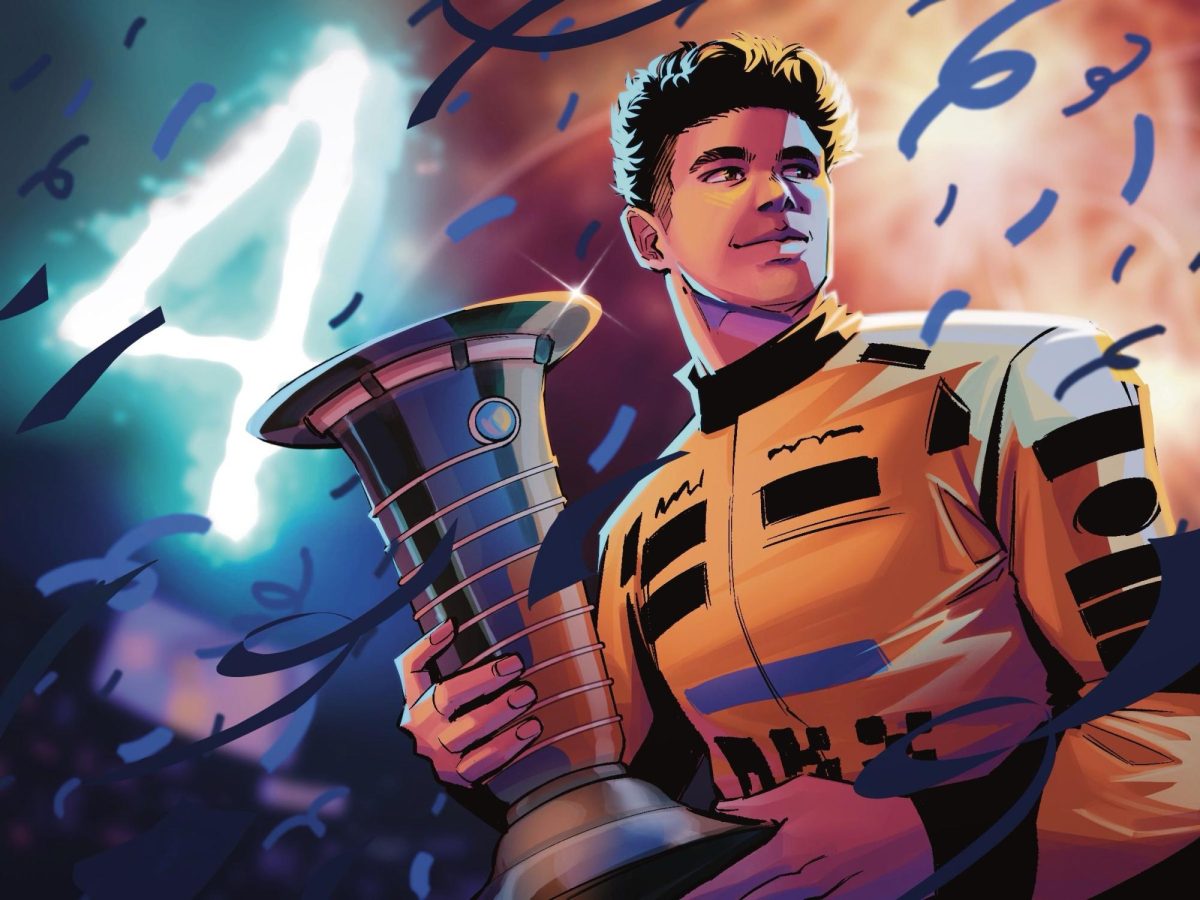Die Meister! Die Besten! Les grandes équipes! The champions! The world’s most glamourous and televised club competition is back for another edition. Regardless of still being played in mostly empty stadiums, the quality of play seen in the UEFA Champions League was exquisite last season and is sure to exceed any expectations this time around.
The 2020-21 edition is full of exciting matchups, storylines and star players that can serve as the perfect introduction to the beautiful game of soccer, or football. Or fútbol, calcio and fußball. This comprehensive preview will be in two parts, with Groups A-D this week and the other four groups next week. Now, let’s meet the teams!
Group A
F.C. Bayern München
The Champions League belonged to Bayern Munich, as they destroyed opponents in unprecedented fashion. From defeating Tottenham Hotspur FC by five goals at White Hart Lane in London, to their 8-2 demolition of FC Barcelona in the quarterfinals, there was no shortage of memorable moments as Bayern became the first team in the history of the European Cup to win all of their games.
From the backline to the attack, Bayern’s lineup is star-studded, led by Polish striker Robert Lewandowksi. The UEFA Men’s Player of the Season, Lewandowski led the Champions League with 15 goals and six assists, while Serge Gnabry emerged as a superstar in the making with nine goals.
On defense, Canadian left-back Alphonso Davies became a serious candidate for the title of “World’s Best Left-Back” with his tremendous speed and defensive ability. This season, FC Bayern will once again be favorites to defend their crown and are sure to advance from this group, although watch out for their midfield, especially with the loss of midfield maestro Thiago Alcántara.
Club Atlético de Madrid
Under manager Diego Simeone, Atlético Madrid are still a tough team to beat. The epitome of grit and grind, their defense is notoriously difficult to break down, a reality that former champions Liverpool F.C. learned the hard way in last year’s Round of 16. In addition, Atléti can punish teams on the counterattack, especially with their two-headed striker duo of Diego Costa and new acquisition Luis Suá rez.
Between the goalposts, Jan Oblak is still one of the best goalkeepers in Europe, only giving up 27 goals in La Liga last year, second only to Thibaut Courtois at Real Madrid. Atlético also has future phenom João Félix in its attack, with big things expected of the 20-year-old Portuguese player, especially in the second season with the Rojiblancos. They will certainly have their hands full with Bayern in their group, but they should gain enough points to advance to the knockout rounds.
F.C. Red Bull Salzburg
A notable team to be sure, as American manager Jesse Marsch is building something in Austria. His coming-out party took place at Anfield last year, where their high-flying, no-holds-barred attacking playstyle took the world by surprise and almost defeated Liverpool. However, that had the consequence of bigger clubs pilfering their top players, including Erling Haaland, Takumi Minamino and Hwang Hee-Chan.
Regardless, this is a team that knows how to win, accomplishing the double of winning their domestic league and cup in a pandemic-interrupted season. Led by the goalscoring prowess of Zambian forward Patson Daka, who had 25 goals and seven assists last season, RB Salzburg can make some noise this year. However, do not hold your breath for this club.
F.C. Lokomotiv Moscow
No. This team will be the doormat of Group A. No offense to any Lokomotiv Moscow fans, but it’s Europa League or bust.
Group B
Real Madrid C.F.
The champions of Spain, even though their transfer window was surprisingly quiet, is still a starting 11 with world-class players. Anchoring the backline is the captain and emotional leader Sergio Ramos, who was a big part of the defense that only allowed 25 goals in 38 games last season in La Liga. Goalkeeper Thibaut Courtois rebounded from a shaky start to his Madrid career to lead the league in clean sheets with 18.
The midfield is led by Casemiro and Luka Modrić. Casemiro led the league last year in tackles with 112 and tackles won with 75, and Modric is only two years removed from a Ballon d’Or award win. In their second season without prolific scorer Cristiano Ronaldo, French striker Karim Benzema fulfilled the role of goalscorer for manager Zinedine Zidane, scoring 27 goals in all competitions.
However, for this club to succeed, Real Madrid needs improvement from their big acquisitions of last season. Accusations of being overweight and his lackluster play marred star attacker Eden Hazard’s first season with Los Blancos. One goal and three assists in 22 games was not what Real Madrid paid 115 million euros for. Real Madrid needs a bounce-back campaign from the Belgian player.
Another player in need of a comeback is striker Luka Jović. The Serbian did not endear himself to fans with two goals and one assist in 27 matches, as well as his flaunting of COVID-19 regulations. He will need to deliver to prove that he is worth a gaudy price tag this season. This team can score goals and defend very well, and the most successful club in European history will look to prove that last year’s elimination in the round of 16 was merely an aberration.
F.C. Shakhtar Donetsk
This ragtag bunch of Ukrainians and Brazilians have treated their domestic league like their own personal punching bag. Winning the Ukrainian Premier League by 23 points, Shakhtar also had a successful campaign in Europe last season, reaching the semifinals of the UEFA Europa League. Led by 20 goals scored with eight assists from Júnior Moraes and 11 clean sheets from goalkeeper Andriy Pyatov, Shakhtar has graduated from the kids’ table. However, all their core players are a year older and in their 30s.
A rude awakening awaits the Ukrainian champions in Europe’s most glamourous club competition. In a group with three teams who have won this competition before, including the most successful team in the history of this tournament, third place in the group might be the ceiling for them this year.
F.C. Internazionale Milano
After a few torturous years mired in mediocrity, Inter Milan has returned to their rightful place among the heavyweights of Italian soccer. Managed by former Italian national team manager Antonio Conte, I Nerrazzurri had a very successful season marked by a second-place finish in Serie A and a runners-up medal in the UEFA Europa League.
Inter were led by Belgian striker Romelu Lukaku, who scored 23 goals domestically in 34 goals in all competitions. He was laureled with the title of Europa League Player of the Season with seven goals and a spot on the Squad of the Season for the Europa League.
His attacking partner, Lautaro Martínez, showed excellent playmaking ability and skill on the ball for Inter last season, scoring 21 goals and registering six assists last season. Although Martinez flirted with a move away from Milan this year, his play will be appreciated this season for Inter. Even though Milan’s attack garners the headlines, their defense is strong, led by Dutch centerback Stefan de Vrij.
Inter allowed the least amount of goals in Serie A last season and looked to improve their defensive capabilities. For Inter to succeed, Lukaku needs to be on top form and the attack needs to be free-flowing, with Conte’s formation of three defensive players allowing for a more attack-minded philosophy. In this group, look for Inter to advance to the knock-out rounds as the second-place finisher.
Borussia Mönchengladbach
Achieving fourth place and the last spot in the Champions League group stage up for grabs in Germany, the Foals have something to be proud of. Last season was slightly disappointing, considering they started off strong, even topping the table by Matchday 14. However, their form fell in the second half of their season.
For Mönchengladbach, they are led by their French attacking duo of Marcus Thuram and Alassane Pléa. Thuram led the team with 14 goals in all competitions, while also contributing eight assists. Pléa, the club’s record signing in 2018, contributed 10 goals and 11 assists.
Swiss goalkeeper Yann Sommer is still going strong between the posts, and Lars Stindl is a solid contributor with 11 goals last season. Teams from Germany are hard to beat, and the Foals are no exception. They can make some noise in the Champions League but expect a whimper into the Europa League.
Group C
F.C. Porto
The champions of Portugal, the Dragons, had a confusing offseason. They sold their joint top goalscorer in all competitions, Tiquinho Soares, as well as an intriguing prospect in Fabio Silva.
They also sold their best player, arguably, Alex Telles to Manchester United. Between Soares and Telles alone, Porto lost 24 goals and 12 assists. Their “replacements” are underwhelming, as they finalized loans for Liverpool castoff Marko Grujić and West Ham goalscorer Felipe Anderson.
Where does this leave the defending champions of the Primeira Liga? Well, they still have good attacking players in Jesús “Tecatito” Corona, who contributed 12 assists while starting the most games in all competitions last season. At striker, Moussa Marega is an intriguing name to watch out for, as he did lead the team with 13 goals last season.
In addition, 22-year-old winger Luis Díaz could be set for a breakout campaign, as he had nine goals and three assists in limited starts for FC Porto. On defense, the backline is anchored by former Real Madrid centerback Pepe. This could be interpreted in different ways, but Porto did allow the least amount of goals in their domestic league last year.
On the other hand, they did not have to face any team with the offensive power of a Manchester City, for instance. FC Porto did well to get to this position, but once their defense falters, the attack might not be enough to keep them afloat. Second place in the group is optimistic, look for the Dragons to finish in second or third place in the group.
Manchester City F.C.
When the group stage draw concluded, Manchester City should have sent UEFA some personalized chocolates and flowers as a thank you. By far the favorites in this group, the Cityzens should have no problems cruising to the top of Group C.
If there is one thing that this team can do under manager Pep Guardiola, it is score. Notching over 100 goals in the English Premier League alone, last season could be considered a disappointment. Never a contender for the Premier League title and losing in humiliating fashion to Olympique Lyonnais in the quarterfinals last season has put the pressure on Pep to win the Champions League now.
They certainly have the attacking pieces to do so. English superstar Raheem Sterling led City with 31 goals in all competitions, while Belgian midfielder Kevin de Bruyne dictated play with aplomb en route to 16 goals, 22 assists and being named UEFA Midfielder of the Season.
Gabriel Jesus and Sergio Agüero both had 23 goals each last season, while super-sub Riyad Mahrez had 13 goals and 13 assists in all competitions. These players, along with Bernardo Silva can give opponents fits.
However, Man City have a serious flaw, their defense. Man City play such possession-based football that they can be exposed on the counter-attack more often than not. Guardiola has spent close to half a billion pounds on defenders since he arrived on the blue side of Manchester, and yet his backline looks vulnerable.
New acquisitions Rúben Dias and Nathan Aké should help solidify the back four, but Pep needs to find his best starting XI if Man City want any chance of winning the UCL.
Olympiacos F.C.
The Greek champions are the ultimate “meh” team. No real stars grace their roster. Their most well-known player is former French national team star Mathieu Valbuena, who pulls the strings in playmaking for the Greek side.
Notching 14 assists last season, Valbuena is supported in attack by forward Youssef El-Arabi, who led the team with 25 goals in all competitions. Another intriguing talent for Olympiacos was leftback Kostas Tsimikas, but he was sold to Liverpool in the summer.
Goalkeeper Jose Sa, who only conceded 17 goals last season in all competitions, should keep Olympiacos within striking distance, but the Europa League seems to suit Olympiacos better than the UCL.
Olympique de Marseille
Still the only French club to win the Champions League, Marseille are back for the first time in six years. Their front line of Dimitri Payet on the left, paired with striker Darío Benedetto and Florian Thauvin on the right could be in the conversation for the most underrated attacking trios in the UCL.
Benedetto and Payet combined for 20 goals in the pandemic-shortened Ligue 1 season. However, they are simply outmatched in this group. Maybe they should remember the past more fondly, as that is as far to the trophy as they will get this season, expect nothing from L’OM.
Group D
Liverpool F.C.
First, the good news. The attacking prowess of the Reds improved dramatically with the incoming transfers of midfield maestro Thiago Alcántara from Bayern Munich and another attacking option in Diogo Jota from Wolves.
Thiago has shown that he can control a game with his inch-perfect passes and intelligence on the pitch, while Jota is lively on the wings and has the quality to change the course of a game with one shot.
The champions of England still enjoy the services of their prolific front three, led by Senegalese sniper Sadio Mané. Mané struck fear into the hearts of his opponents with his goalscoring abilities, registering 22 goals and nine assists in all competitions. Joining Mané is Mohamed Salah, who scored 23 goals and contributed 12 assists for the Reds last season.
Finally, in the middle is Roberto Firmino, who can score and assist at will. If the front three are hampered, manager Jurgen Klopp can deploy super-sub Takumi Minamino, Jota and Xherdan Shaqiri.
The midfield is stacked once again, led by the heart of the team Jordan Henderson. Gini Wijnaldum and Fabinho also showed the ability to control the middle of the pitch and bend the game to their will, with Fabinho impressive on the defensive end.
The wingbacks are the same as last year, with Andrew Robertson and Trent Alexander-Arnold whipping textbook crosses into the box with ease.
Now, the bad news. Liverpool will enter a brave new world without defensive rock Virgil Van Dijk, who suffered an injury to his knee and is out for most of the season. Liverpool’s “heavy-metal football” demands a high press to keep opponents on their toes. However, the gegenpress often leaves them exposed at the back, Without Van Dijk, the Reds look vulnerable. To succeed in this competition, Liverpool can win pretty in attack, but they must learn to win ugly and grind out victories.
A.F.C. Ajax
The team that will be on the pitch for the 2020-21 Champions League is dramatically different than the team that was minutes away from a berth in the Champions League final a mere two years ago. Their best players were plucked by bigger clubs and their starting XI ravaged.
Gone are the likes of Frenkie de Jong, Hakim Ziyech, Lasse Schöne and Matthijs de Ligt. Does this mean that Ajax should be discounted? Not by any means. Their philosophy of “total football” means that any player can play any position.
Ajax can dominate when they want, it is just a question of pulling the trigger. Still on Ajax from that team two years is winger Dušan Tadić, who led the team last season with 17 assists. Quincy Promes is the main goal scoring threat, with 16 goals last season.
Ajax knows how to play offensive soccer but can be compact if necessary. Even without the talent of years past, Ajax will play tight with all opponents.
Atalanta B.C.
One word to describe Atalanta? Goals. The Cinderella story of last year’s Champions League are probably the most exciting team to watch in all of Europe. The debutantes took the world by storm with their attacking football drilled into them by manager Gian Piero Gasperini.
Players such as Duván Zapata and Josip Iličić became household names. Atalanta scored an incredible 98 goals in Serie A last year and had the most successful season in the history of the club, mere minutes away from a trip to the semifinals of the Champions League. This year, more of the same is expected from the Italian club, with many pieces returning.
Iličić led the team with 21 goals, while Zapata and Luis Muriel both had 19 each in all competitions. Pulling the strings in the midfield is Alejandro “Papu” Gómez, who led the team with 16 assists.
Other standout players include Robin Gosens, the wingback with a nose for goal who had 10 last season, Maarten de Roon, who was always willing to deliver the rough tackle, and Ruslan Malinovskyi, who was always capable of the spectacular.
Atalanta’s attack will only improve with the addition of 14-goal scorer Aleksei Miranchuk from Russia. Their attack is so potent that they just outscore their opponents, as they became the first team in Italy to score at least four goals in each of their first three league matches. Expect fireworks from the little club from Bergamo.
FC Midtjylland
The little engine that could. First-time participants in the group stage, FC Midtjylland are the 21st century team in the most traditional of tournaments, as they rely on data, analytics and an excellent youth academy to discover talent on a shoestring budget.
Sound familiar? Given the nickname “Moneyball FC,” the Danish champions will soon learn a valuable lesson. Moneyball gives you success up to a certain extent. There will be a rude awakening in this group, and their finish is as close to a sure thing as you can get in this group. Dead last, but hopefully they learn from this experience.


